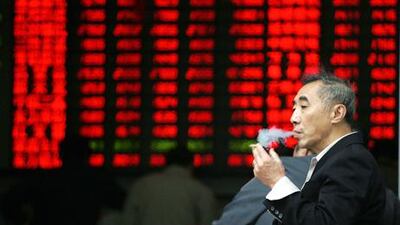Commentators have the fast-growing economy preparing to break free from the US and make 2011 the global Year of the "Dragon". But history would seem to dictate it will not
Every time Asian economies outperform the US, commentators declare Asia is finally going to grow on its own momentum and does not need America any more.
In the 1980s it was Japan that was supposed to have broken free of the US and was ready to take over the world. In the early 1990s, when the US suffered a short, sharp recession, it was the "Asian dragons" such as Singapore, Malaysia and Korea that were set to dominate on their own.
As it turned out, neither Japan nor the Asian dragons were able to really break free of the US.
The latest candidate is China and the scenario looks very plausible. While the US has emerged as the world's greatest debtor, China is sitting on trillions of dollars of surpluses and is the largest owner of US treasuries.
A little-known fact is that the US Federal Reserve Board, as a result of its quantitative easing, owns more of the treasuries issued by the US government than China but as it is not easy to build a case for the Fed taking over the world, it will have to be China that is the preferred candidate for global domination.
Pundits may have their views on history but the stock markets do not always oblige them.
The striking thing about the markets of Asia and the US in the past two years is that they have more or less moved in tandem.
If the paths of the US and Asia are diverging, with the US on a declining path and Asia on the ascendancy, one would expect the stock market of the US to be withering and the markets of Asia buoyant.
But the stock markets of the US and Asia since the financial crisis of 2008 have waxed and waned on the basis of what has been happening in the US.
The case of the China's "local" market, the shares traded in Shanghai and designated for purchase by "local" Chinese only, is even more curious. The Shanghai indexes have actually declined in the past two years, even while the US stock indexes have slowly climbed; curious behaviour for the stock market of a country that is supposed to be on the verge of taking over the world.
If the saying that markets are always right is true, then it may be worthwhile trying to figure out what those of the US and Asia are trying to tell us. While the export-addicted Asian markets may have a different set of problems than the debt-addicted US, they seem to share common trading partners and a common economic fate.
They are like two unsteady drunks supporting each other and tumbling along, each fearful of letting go as that will mean both will hit the ground with a thud.
We don't yet know what this year will bring to their economies but it looks more and more likely the US economy will slowly but surely move into the growth path, and higher interest rates there will follow.
It will be interesting to see what will happen to asset bubbles fuelled by the "cheap" US money sloshing around Asia. At the least these bubbles will "correct".
If that happens, experts can abandon the Asia Rising slogan and revert to an earlier slogan: "When the US sneezes, the rest of the world catches a cold."
The more things change the more they remain the same. Happy New Year!

